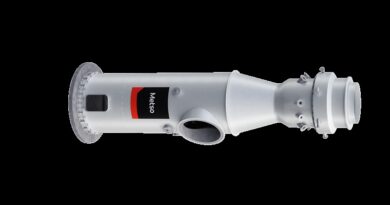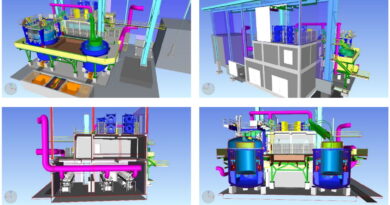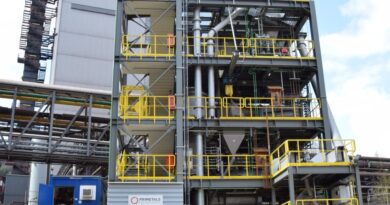FLS supports the surging demand for lithium
Half of the world’s 211,000 tonnes of lithium carbonate equivalent (LCE) used in 2017 was accounted for by electric cars and by 2027, that figure is expected to be 90% of 1,265,000 tonnes. Electric vehicles need large batteries and rising demand in this area is expected to create large markets for battery-grade lithium for the foreseeable future.
Demand for lithium will continue to increase significantly during the next decade. The result for the mining industry is that there is a large opportunity to make good money on lithium if production can be increased to meet demand. There is also a wide-spread agreement in the industry that it will not last forever.
There is a race to get these projects off the ground, and time-to-market is overriding all other factors when we speak to customers about open-ing up new facilities. One way to speed up the process of designing and opening a lithium facility is to do the right testing of your material. Some miners take a traditional approach and go to commercial laboratories. But those tests are not sufficient for the technology and equipment design needed to build a high-performance facility.
Lithium test centres can help speed up production
At its test centres in Salt Lake City, Utah, and Bethlehem, Pennsylvania, both in USA, FLSmidth has best-in-class testing capabilities to test both brine and hard rock lithium sources. Testing here includes minerals testing and pyro-processing testing for designing the optimal facility. Our engineers understand the industry and can do these tests quickly. Based on the tests, they design the optimal process flowsheet, plant design and plant layout. It especially provides value when our customers approach us early in the process. The earlier we can cooperate, the quicker the projects can move, and the better the plant design can be. This means lower CAPEX and faster time to market.
Providing expertise in a new field
The lithium industry is dominated by four large players: Albemarle, SQM, FMC, and Sichuan Tian-qi Lithium. The rising demand and the forecast for the next decade have sparked expansion of plants from the major players as well as a large increase in the number of junior companies trying to gain a foothold in the market.
As supplier of a full flowsheet for lithium facilities, FLSmidth is feeling this demand from both exist-ing and new customers. Because lithium is a young industry, it is not like copper or gold, where you can find people with 40 years of experience. It is harder to attract an experienced talent pool to run a lithium facility, so to reduce their risks, we know our customers look for reliable technology and technical capabilities to help them.
Despite the young age of the industry, FLSmidth has more than 20 years of experience with specific hydroprocessing in lithium facilities. For other processes, the company replicate process equipment from other commodities and make modifications to meet the specific needs.
Lithium is in many ways similar to the adjacent industries in which we have operated for more than 130 years. Especially due to our test work we are able to make quick modifications and define the operating parameters in our equipment in order to separate the lithium from the impuri-ties.
Efficient processing
To help customers get up to speed, FLSmidth also keeps a database of previous projects and this allows the company to replicate flowsheets and settings. And perhaps even more important, it gives the company a great understanding of the equipment’s performance under various circumstances.
This means that we help the customers optimise the equipment and the production. Being a life-cycle partner, we have assisted Albemarle and FMC with removal of bottlenecks and increased throughput or quality in existing plants. Our database also means that we know the maintenance requirement of our equipment, so our customers can avoid unplanned stops.
Investors in new projects appreciate our proven technology and that they can rely on one partner to provide the testing, the equipment, the commissioning and the service and maintenance. Existing customers have already acknowledged that this reduces costs and risks and expedites the process execution.




